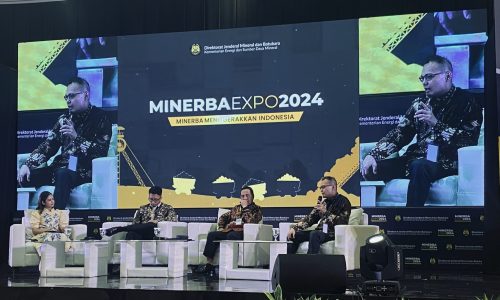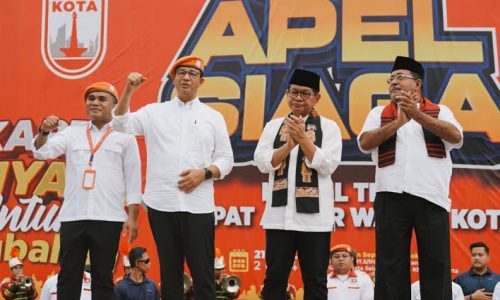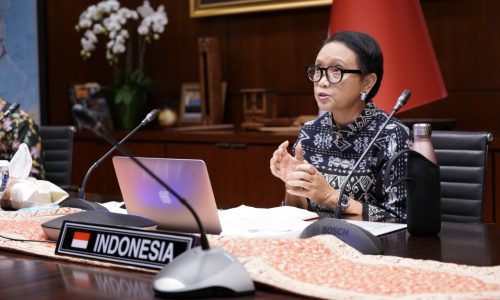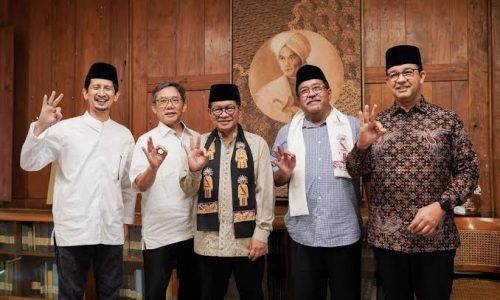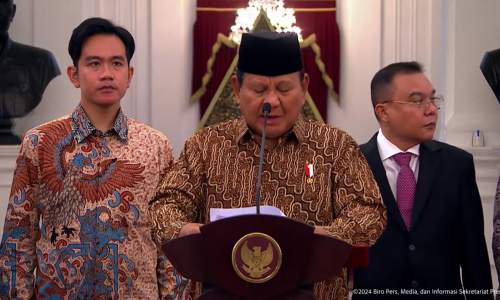JAKARTA − Chairman of the Center of Energy and Resources Indonesia (CERI), Yusri Usman, has alleged that President Joko “Jokowi” Widodo broke the law when issuing Government Regulation No. 25/2024 on the Implementation of Mineral and Coal Mining Activities which contradicts Law No. 3/2020 on Mineral and Coal Mining.
Yusri said the President could then be impeached for violating the proper mechanism in issuing a government regulation.
“Government Regulation No. 25/2024 signed by President Jokowi on May 30, 2024, contradicts the Mineral and Coal Mining Law No. 3/2020, which stipulates that the granting of Mining Permit (IUP) must be held through auction, while the 2024 regulation stipulates that the permit can be issued through priority bidding (see article 83a),” Yusri said on June 9, 2024.
“We consider President Jokowi to have violated Law No. 13/2022 on the Second Amendment to Law No. 12/2011 on Law Formation. It is clear that in terms of hierarchy, a law is higher than a government regulation,” he added.
Not only that, said Yusri, Government Regulations must also not discriminate against community groups, but they must explain the technicalities of the Law above.
For this reason, the choice of potential impeachment of the President falls within the territory of the people’s representatives in the House of Representatives (DPR) to address it. We can only challenge the product of Government Regulation No. 25/2024 to the Supreme Court for cancellation.
“The CERI management has agreed to challenge the lawfulness of Government Regulation No. 25/2024,” Yusri said.
Yusri said further that Government Regulation No. 25/2024 has a new article, namely Article 83A which consists of two points, namely (1) In the context of improving the welfare of the community, the area of mining business permit can be offered on a priority basis to business entities of religious community organizations; and point (2) the area of special mining business permit as referred to in paragraph (1) is a former PKP2B (coal mining contract of work) area.
“Article 83 A Point (1) is what we clearly see as contradicting Article 75 of Law No. 3/ 2020. Where it is stated in Article 75 paragraph (3) that, State-owned companies and Region-owned companies as referred to in paragraph (2) get the priority in obtaining special mining business permit ( IUPK),” he said.
The problem is, Yusri added, Article 75 Paragraph (4) of Law No. 3/2020 stipulates that private business entities as referred to in paragraph (2) should get their special mining permits through an auction.
“How could the government regulation say that area of special mining permit (WIUPK) can be bid on a priority basis when the higher law states that private business entities should get their special mining permits through auctions?” he said.
Asked about the reason provided by the government in granting mining licenses to religious organisations because the government wants to improve the welfare of the community, Yusri said the money to foster religious organizations has been budgeted in the State Budget (APBN ) and the Regional Government Budget (APBD) for a long time.
“It could be channeled through the Ministry of Religious Affairs, the Ministry of Home Affairs and the Regional Government from the Province down to the Regency and the City. Perhaps, even at the sub-district level there is a development fund for religious organizations,” Yusri said.
He appreciated religious organizations, which had rejected the government’s offer to get the mining permits.
He added that CERI also encourages religious organizations to focus on fostering the “ummah” and not to get polluted, even to the point of damaging the good name by engaging in the mining business, which has the potential to damage the environment and is often referred to as mining mafias in various media.



